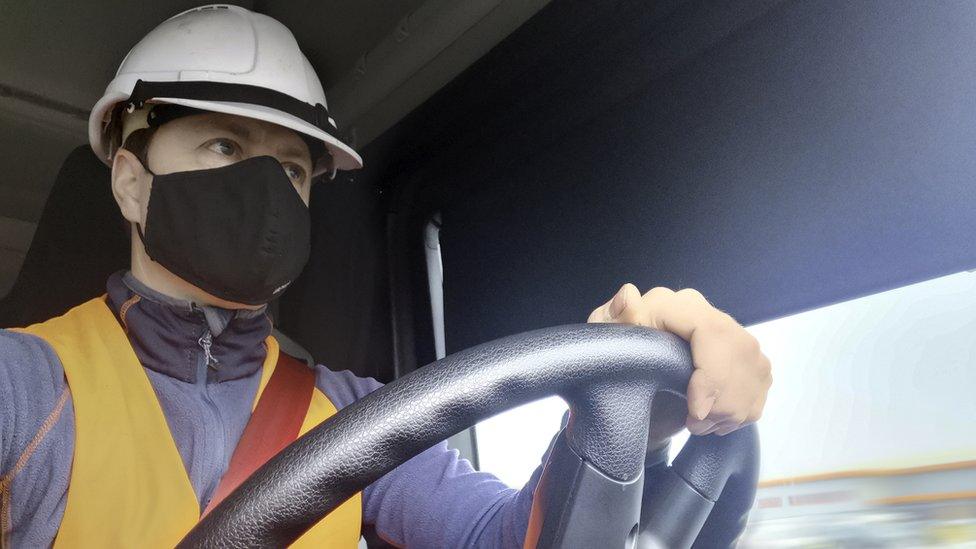HGV driver shortages: What is behind the problem in Wales?
- Published
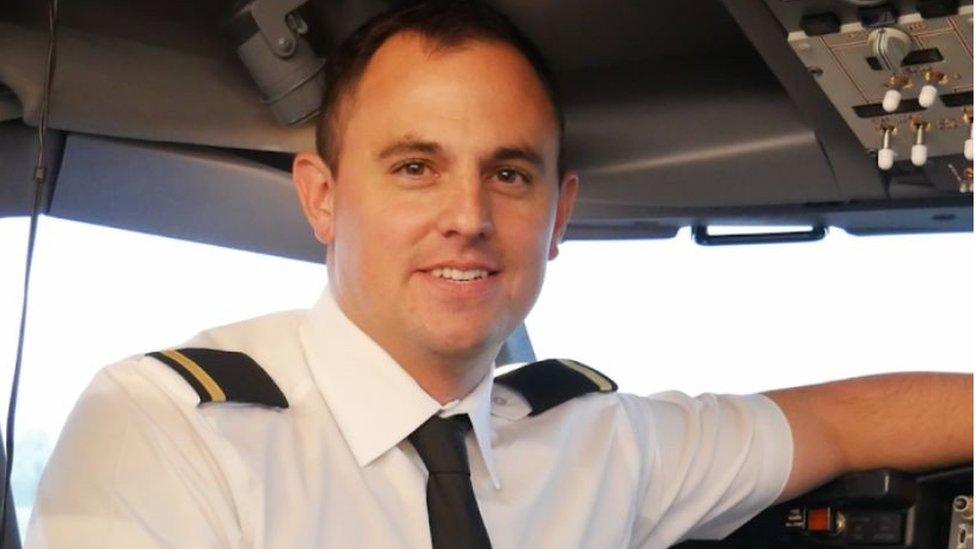
From cabin to cab: Aaron Leventhal found it much easier to get a job driving a lorry than previously
A former pilot who had to give up his job when his airline collapsed has said getting a HGV job closer to home has been a lot easier this time round.
Aaron Leventhal said the UK was "desperate for drivers" and pay has increased significantly since he previously drove lorries.
Shortages of drivers have created major problems for shops and restaurants across the UK.
The pandemic, changes after Brexit and paperwork delays have all been blamed.
Mr Leventhal, who lives in Swansea, is a former Flybe pilot who returned to the HGV industry after the airline collapsed at the start of the pandemic.
He said being made redundant left him "high and dry" but as he worked during his pilot training, his HGV licences were all up to date.
He said some Flybe colleagues have gone to work in supermarkets as the demand for pilots is not there.
Since the driver shortage emerged he has been able to get a job near his home in Swansea.
The father-of-one said he has seen pay rates for agency drivers in his licence category go from £9 per hour a year ago to up to £30 an hour - plus an extra £5 an hour to pay for a driver's hotel room.

Food companies are desperate to get drivers like him, Mr Leventhal says
He has a dangerous goods licence which enables him to transport fuel - a section of the industry which traditionally paid more.
He said, however, many are moving over to transporting food, as the demand and pay rates are much higher.
"They are desperate to get drivers and they will pay more," he said.
"I can't see it coming down too much because it's kind of a trap. I've had emails coming through in the last six months paying up to £30-an-hour."
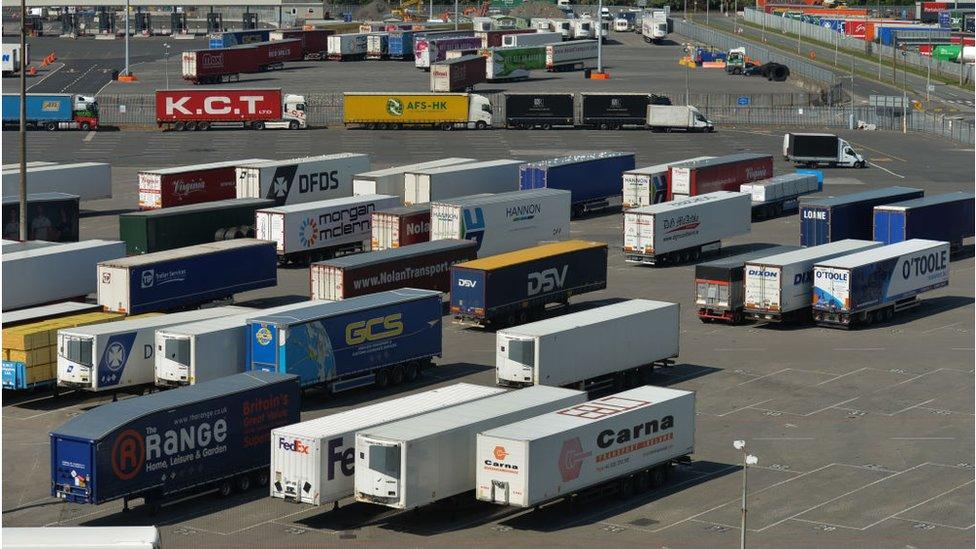
Brexit has meant it is not worth it for European drivers to come in and out of the UK
The Road Haulage Association estimates there is a shortage of more than 100,000 drivers in the UK, out of a pre-pandemic total of about 600,000.
That number included tens of thousands of drivers from EU member states who were living and working in the UK.
Even before Covid, the estimated shortage was about 60,000 drivers, according to surveys of its members.
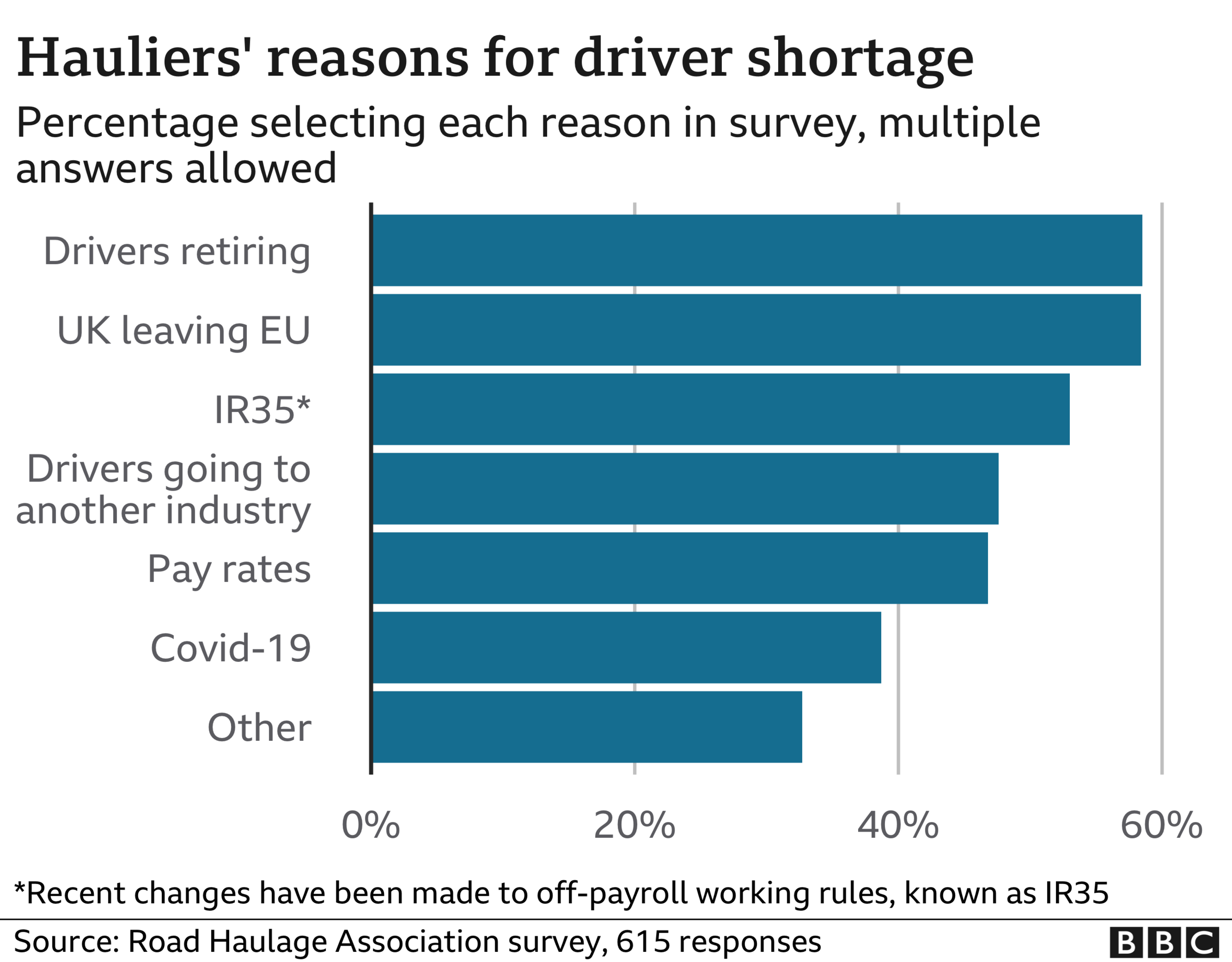

Bernard Davies has run haulage firm ATB Davies in Carmarthen since 1973 and the 76-year-old currently employs 16 drivers - but could do with more.
He said: "There is a shortage and it is very serious because there's nobody coming through the system.
"We've had to increase pay by 10% to 12% - we've been to the customers and they have agreed to give us a rate increase to cover that.
"People are desperate - they are all desperate to get drivers to get their goods delivered."
He said Brexit and the cost of getting the licences is to blame.
Scrapping theory tests could cut HGV driver shortage, says lorry driving instructor
"If you want a Class 1 now and you've got to do a Class 2 first and you're looking at £3,500.
"Before Brexit I could recruit a lot more easily. Increasing the hours isn't going to solve anything - we need more drivers."
He said a HGV driver now is earning £40,000 a year, up from about £28,000 to £30,000 five years ago.
"But somebody's got pay for it and it's going to be the public," he said.
"If you're going to the shop it's going to cost you a bit more. I don't think it's going to come out of the profits of the supermarket people."

Where have all the lorry drivers gone?
Analysis by BBC Wales political reporter Adrian Browne
There was already a shortage of HGV drivers before Brexit and coronavirus.
Freight firms and retailers estimate 25,000 EU drivers returned home during the pandemic and at the end of the Brexit transition period, when freedom of movement between the continent and UK ceased.
And Covid-19 put driver training and testing for new lorry drivers on hold for 12 months.
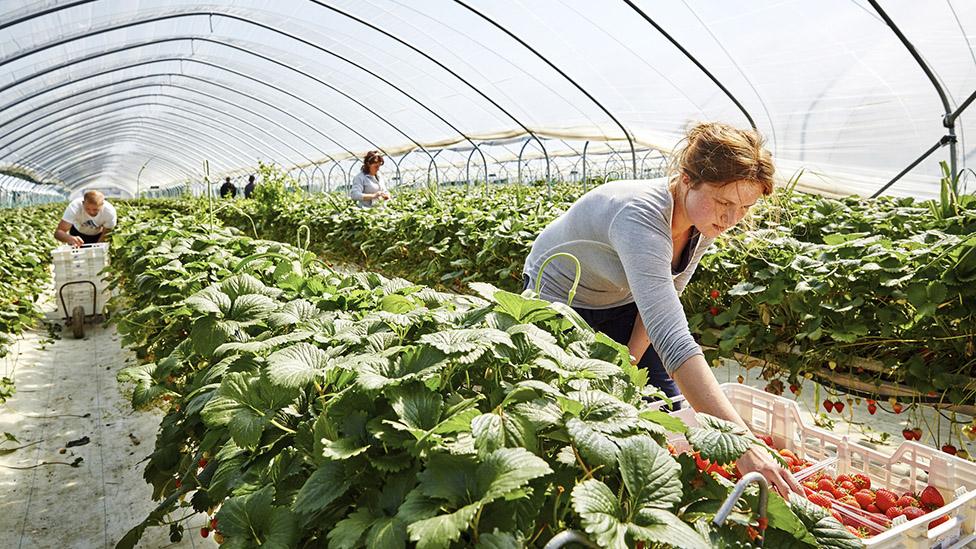
There have been warnings about fruit and vegetable deliveries because of driver shortages
UK ministers are refusing to grant temporary work visas to EU drivers.
They insist the British people voted in a referendum and a general election to end free movement.
UK firms, ministers say, should no longer rely on labour from abroad and must invest in the workforce at home instead.

What is being done to help?
The UK government has slightly relaxed the daily driving limit from nine hours to 11 hours twice a week.
Haulage companies want a change in the rules to make it easier for drivers from abroad to get temporary visas to work here.
But the UK government argues progress is already being made in testing and hiring, and it says a big push is being made towards improving pay, working conditions and diversity.
And ministers have said employers should invest in British workers.


Luke Vernon's licence was removed after he was injured in a crash but he said trying to get through to the DVLA is "like a puzzle"
Luke Vernon, from Ceredigion, said growing up he always dreamed of being a lorry driver - just like his father.
After 24 years in the industry, a car crash has meant he has been off work since last February.
He said medical examinations revealed it was not an ongoing problem but it had been a "puzzle" trying to get his licence back.
He said some people had left the industry because of companies "treating drivers like children by constantly tracking them", but the pay had a lot to do with it too.
Brexit has made this worse because a lot of the European drivers went home, he added.
"Before this companies didn't have an issue recruiting drivers because they could pay low wages and always find employees but now this pool of employees has gone they are having to pay more."
He said lower-end drivers earn around £10 per hour with higher-end ones taking home up to £17 per hour.
"I really do enjoy it. I've never been that bothered about money because I'm single and live alone but I've been all over Europe."
A Driver and Vehicle Licensing Agency spokesperson said: "By law, all drivers must meet the medical standards for fitness to drive at all times when driving.
"We are prioritising HGV provisional licence applications which are being issued in around two weeks, and HGV licence applications which are currently being issued in around four weeks.
"More complex transactions, for example if medical investigations are needed as part of a driving licence application, may face longer delays.
"There are delays in processing paper applications due to ongoing industrial action and social distancing requirements, which means that we have fewer staff than usual on site."

TIME TRAVEL WITH TUDUR: The funniest of moments from the last half century of Welsh telly
THE CASABLANCA: How a Cardiff nightclub changed our lives

- Published15 October 2021
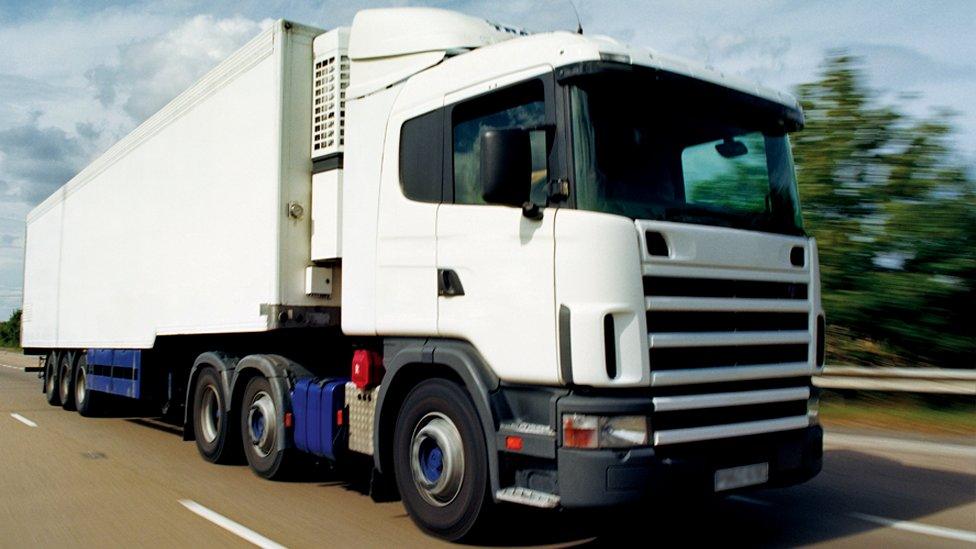
- Published22 August 2021
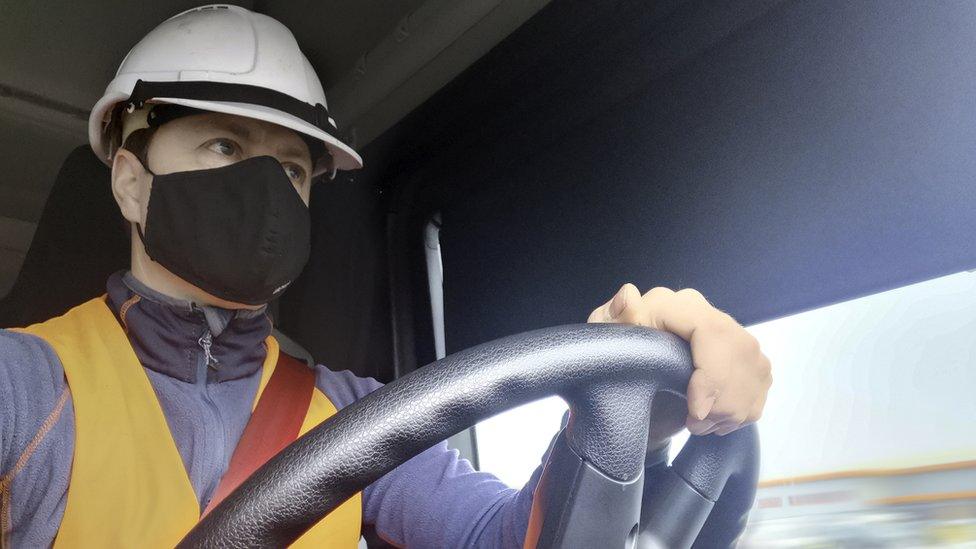
- Published24 August 2021

- Published27 July 2021
